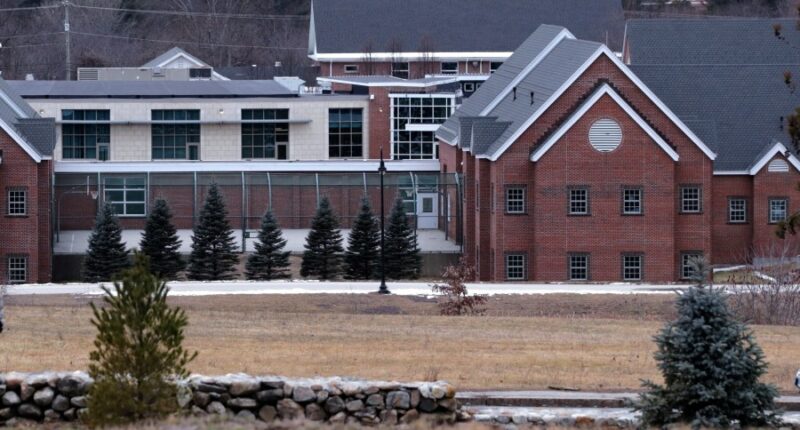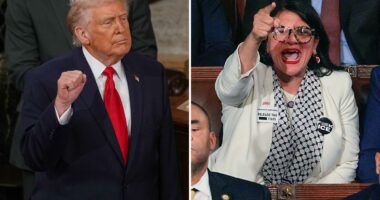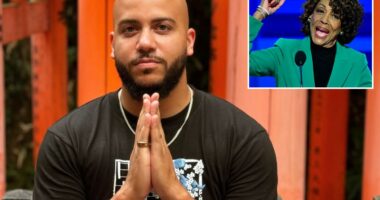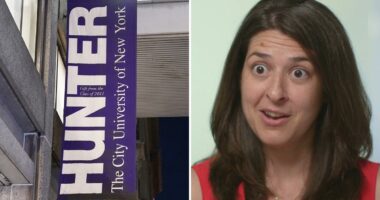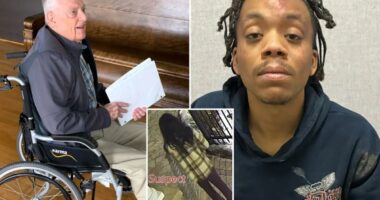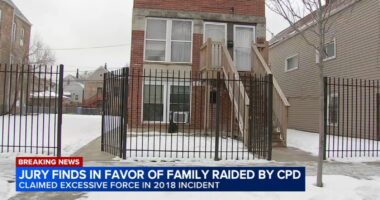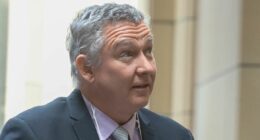Share this @internewscast.com

An attorney renowned for her role in setting up the 9/11 victims’ compensation fund warns that New Hampshire legislators have compromised the fairness of a settlement program for abuse victims from the state’s youth detention center.
Deborah Greenspan, who was involved as deputy special master for the fund established after the September 11 attacks, has recently filed an affidavit in a class-action lawsuit aimed at preventing alterations to New Hampshire’s out-of-court settlement fund for abuse survivors. She is anticipated to provide testimony on Wednesday concerning the state’s motion to dismiss the lawsuit and address other pertinent issues.
Since 2020, upwards of 1,300 individuals have initiated legal action against the state over claims of physical or sexual abuse as children while in its care, predominantly at the Sununu Youth Services Center in Manchester. The majority paused their lawsuits after lawmakers established a settlement fund in 2022, described as “victim-centered” and “trauma-informed,” managed by a neutral administrator chosen by the state Supreme Court. However, through late changes in the state budget approved by Governor Kelly Ayotte in June, the Republican-led Legislature altered that approach.
The revised law now allows the governor to appoint and remove the fund’s administrator and grants the attorney general — also a political appointee — the power to veto settlement decisions. This diverges significantly from the standard practices of other victim compensation programs, according to Greenspan, who is currently a court-appointed special master for cases involving lead-contaminated water in Flint, Michigan.
She remarked that it is hard to imagine that anyone would submit a claim, knowing that “the individuals making the final decision on the claim were the ones accountable for the claimant’s suffering.”
“This framework would surpass mere appearances of misconduct and foster a direct conflict of interest, thereby eroding the fairness and integrity of the settlement proceedings,” she stated.
Ayotte and Attorney General John Formella responded by asking a judge to bar Greenspan’s testimony, saying she offered “policy preferences masquerading as expert opinions” without explaining the principles beyond her conclusions.
“Her affidavit is instead a series of non sequiturs that move from her experience to her conclusions without any of the necessary connective tissue,” they wrote.
The defendants argue that the law still requires the administrator to be “an independent, neutral attorney” and point out that the same appointment process is used for the state’s judges. They said giving the attorney general the authority to accept or reject settlements is necessary to give the public a voice and ensure that the responsibility for spending millions of dollars in public funds rests with the executive branch.
As of June 30, nearly 2,000 people had filed claims with the settlement fund, which caps payouts at $2.5 million. A total of 386 had been settled, with an average award of $545,000.
One of the claimants says he was awarded $1.5 million award in late July, but the state hasn’t finalized it yet, leaving him worried that Formella will veto it.
“I feel like the state has tricked us,” he said in an interview this week. “We’ve had the rug pulled right out from underneath us.”
The Associated Press does not name those who say they were sexually assaulted unless they come forward publicly. The claimant, now 39, said the two years he spent at the facility as a teenager were the hardest times of his life.
“I lost my childhood. I lost things that I can’t get back,” he said. “I was broken.”
Though the settlement process was overwhelming and scary at times, the assistant administrator who heard his case was kind and understanding, he said. That meeting alone was enough to lift a huge burden, he said.
“I was treated with a lot of love,” he said. “I felt really appreciated as a victim and like I was speaking to somebody who would listen and believe my story.”
Separate from the fund, the state has settled two lawsuits by agreeing to pay victims $10 million and $4.5 million. Only one lawsuit has gone to trial, resulting in a $38 million verdict, though the state is trying to slash it to $475,000. The state has also brought criminal charges against former workers, with two convictions and two mistrials so far.
The 39-year-old claimant who fears his award offer will be retracted said he doesn’t know if he could face testifying at a public trial.
“It’s basically allowing the same people who hurt us to hurt us all over again,” he said.
